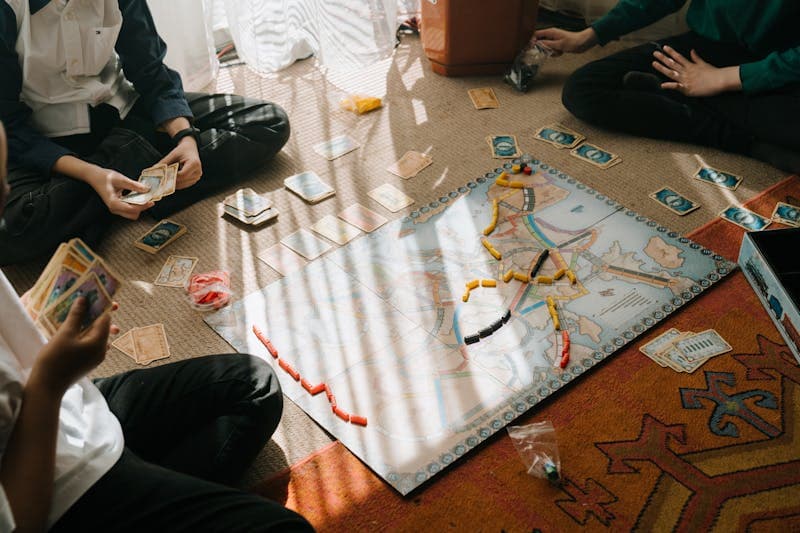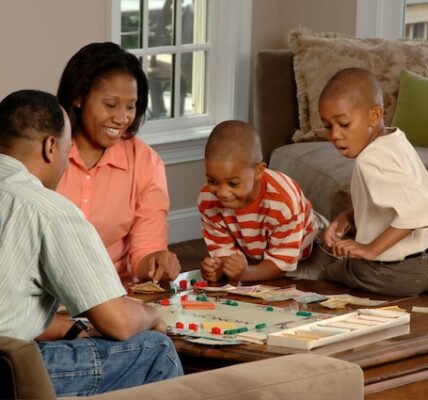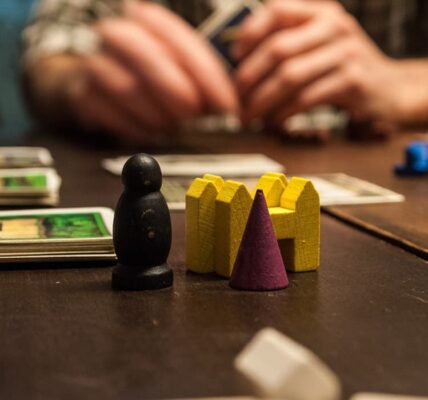At a game night, it is important to know how to behave properly in order to not only enjoy the game, but also to ensure the comfort of those around you. Proper behaviour helps to create a friendly atmosphere and makes everyone feel like an important part of the group. Following simple but important rules of etiquette will help to avoid conflicts and misunderstandings, making the gaming experience enjoyable and exciting for everyone involved.
Rules of Game Etiquette
Game night etiquette is more than just following the rules; it is a way of showing respect for other players and the game itself. Following these simple principles will help to create a friendly and fun atmosphere.
Basic rules of gaming etiquette:
- Treat others’ games with respect: Games are someone else’s property. Don’t bend other people’s cards and handle components carefully.
- Consider player comfort: Allow drinks and snacks at the gaming table. Use containers that prevent spills.
- Be careful with food and drink: If you spill something on the game, offer to buy a new copy in exchange.
- Follow the rules of the game: Don’t cheat. Games function only when all players follow the established rules.
- Choosing games for the evening: Respect the choice of games made by the organiser of the evening. Do not insist on your preference if it does not suit the majority.
- Teaching the rules: If you bring a game, be prepared to explain its rules. Listen carefully when the rules of another game are explained to you.
- Respect for others’ time: Avoid thinking long and hard about a move. Strive to act quickly and efficiently to keep the game fast-paced and fun for everyone.
- Reaction to victory or defeat: Respond to the outcome of the game with restraint. Maintain a positive attitude even in the event of defeat.
- Team Play and Co-operation: In team and co-operative games, show team spirit and support, not just the desire for individual victory.
- Attitude towards game materials: If a game is accidentally damaged, offer replacements or compensation.
- Decision Making: Do not coax or criticise the decisions of other players. Everyone should be able to choose their own moves.
- Ending the game if not satisfied: If all participants are not enjoying the game, offer to end the game and choose another.
- Maintaining order and organisation: Help to prepare and clean up the play space. This is respectful of the host and other participants.
- Learning new games: Try to familiarise yourself in advance with the rules of the game you plan to offer or play.
- Controlling emotions: Control your emotions during play. Avoid rudeness and aggression even during tense moments.
Following these rules will not only increase your enjoyment of the game, but will also help maintain a friendly atmosphere at game nights.
Examples of additional rules:
- Team Play: Team games allow for more emotion, especially if it is an internal confrontation game or co-operative games. Celebrate shared victories with enthusiasm, but respect the feelings of the losers.
- Attitude towards game materials: If you accidentally damage a game, a replacement should be offered. This shows respect for the game owner and other participants.
- Situational Awareness: If everyone involved in the evening is not enjoying the game, it may be worth stopping and choosing something else to play.
- Maintaining a calm atmosphere: Try to maintain a calm and friendly atmosphere and avoid criticising other players.
- Respecting turn order: Respect the order of moves and do not interrupt other players. Maintain a clear and consistent game dynamic.
- Respect for others’ opinions: Do not insist on your opinion if it differs from that of the majority of players. A willingness to compromise will make gameplay more enjoyable for everyone.
- Use of Technology: Limit the use of mobile phones and other devices during the game to avoid distracting yourself and others from the gameplay.
- Accountability for your actions: Be willing to take responsibility for your mistakes and bad moves, don’t pass the blame on to others.
- Teaching newcomers: Be patient and supportive with new players, helping them learn the rules and strategies of the game.
- Keeping the gaming table tidy: Strive to keep the gaming table neat and organised at all times. This will improve the overall experience of the game.

The Importance of Etiquette
Following the rules of etiquette at game nights not only creates a pleasant atmosphere, but also helps to avoid conflicts and misunderstandings between participants. It is also a way of showing respect for the efforts of the organiser and other players. Remember that the main purpose of a game night is to spend time with friends, enjoying the process, not just the desire to win.
Conclusion
The rules of gaming etiquette help maintain a friendly and respectful atmosphere at game nights. They are not complicated, but they are very important for creating a comfortable environment where everyone can enjoy playing and socialising. Following these simple rules will make any gaming session more enjoyable and interesting for all participants.




